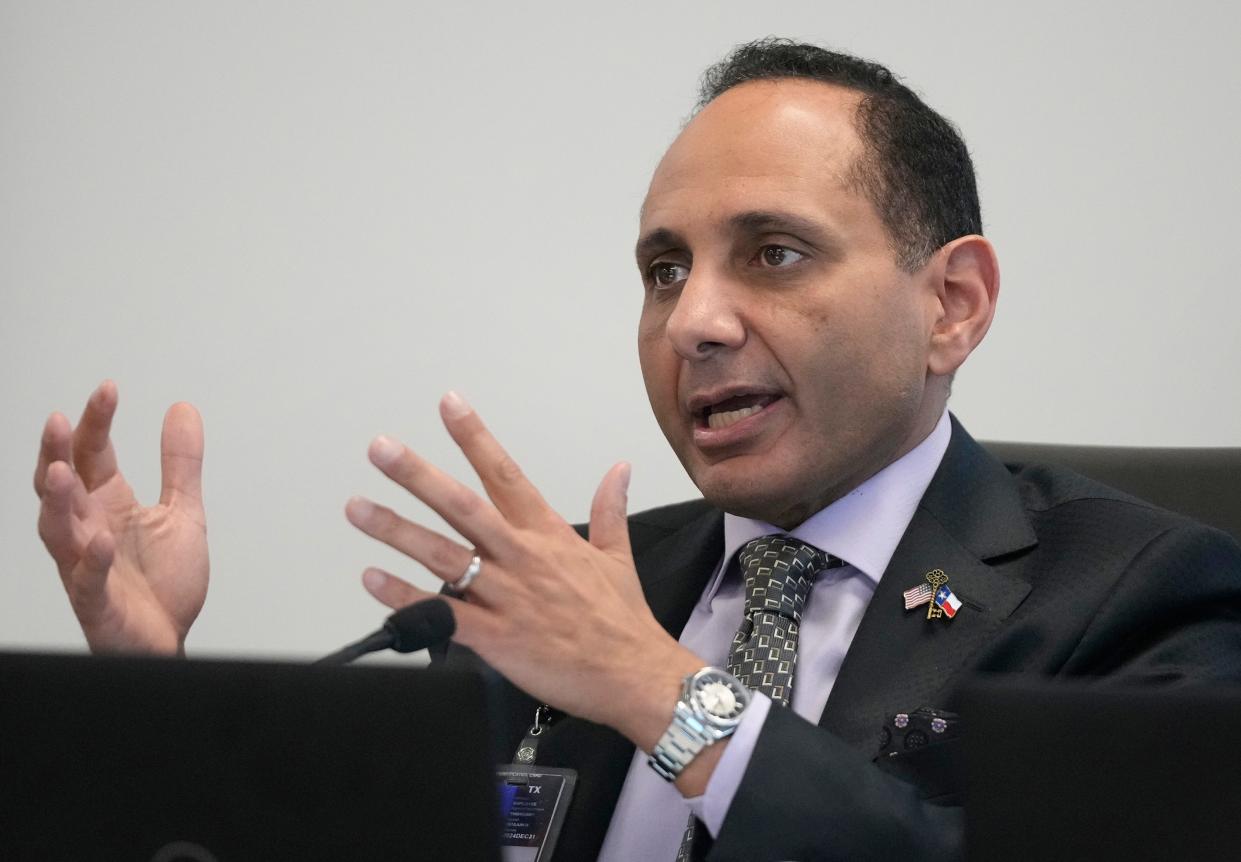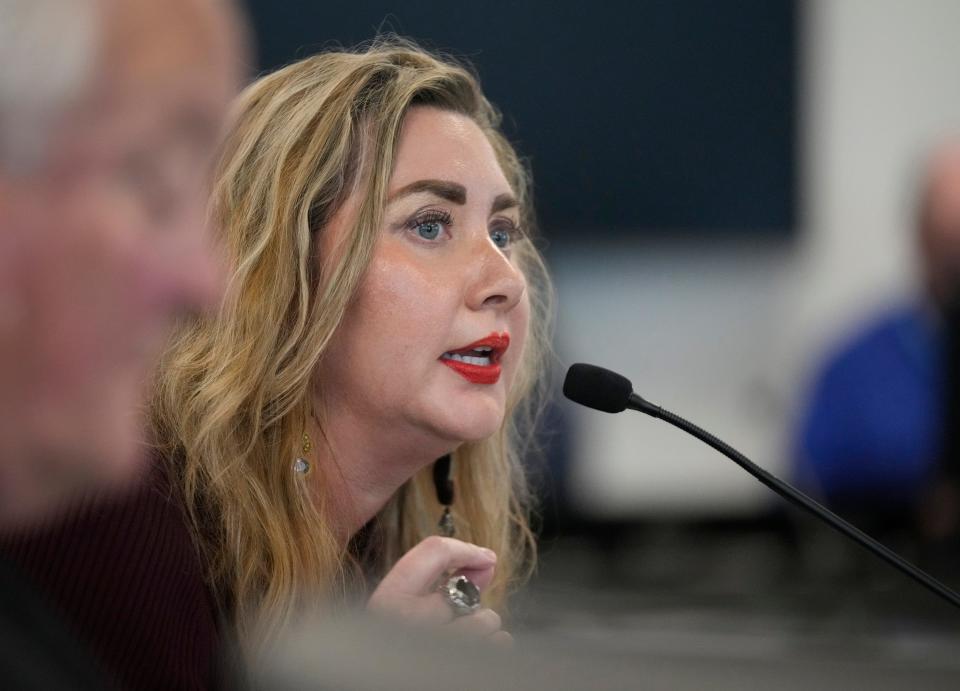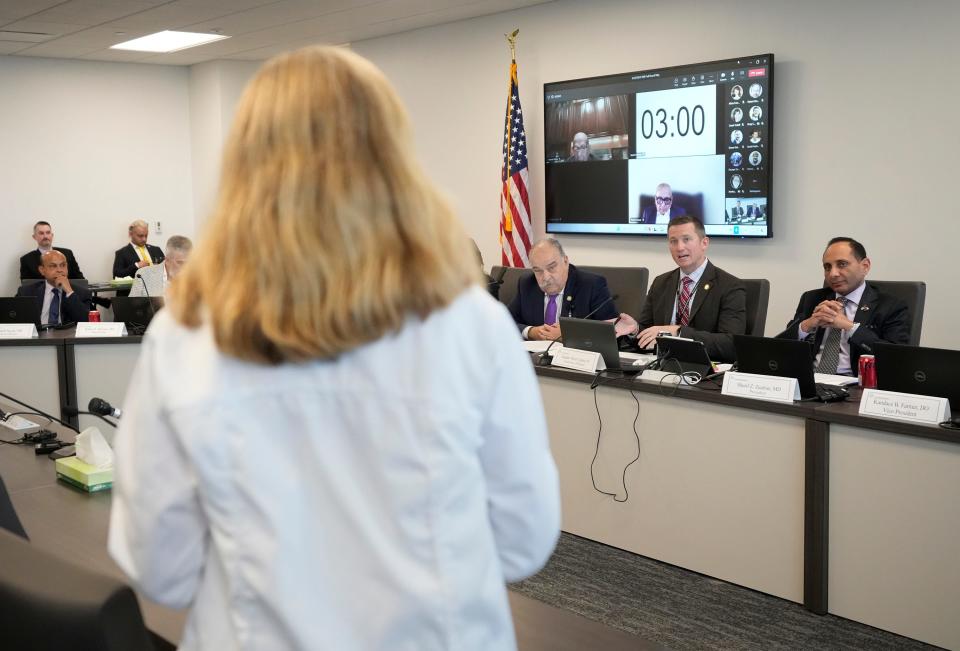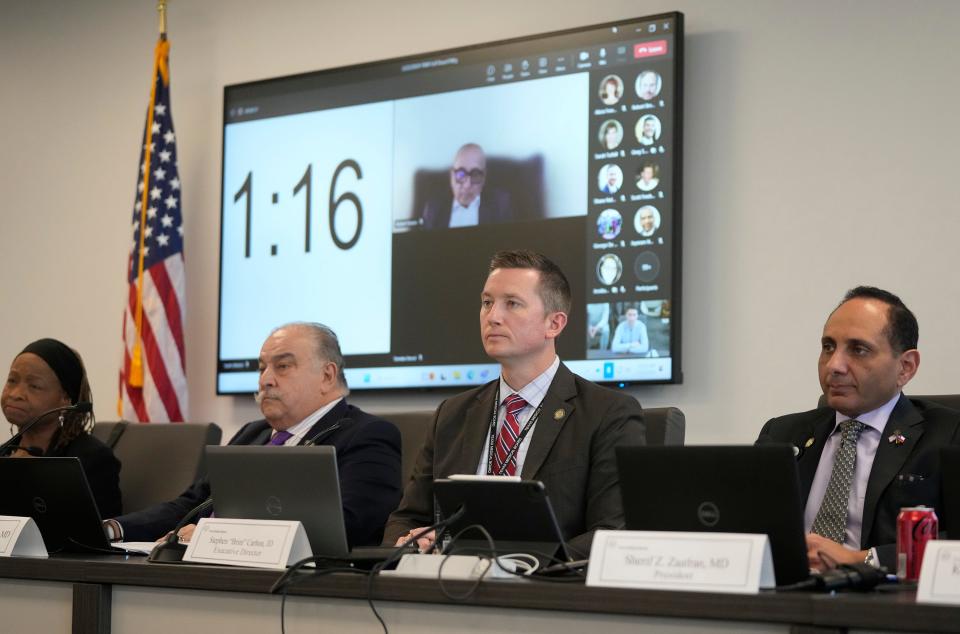Texas OB-GYNs slam proposed TMB abortion rules: 'Dead mothers do not lead to live babies'

Texas women, OB-GYNs and representatives of some of the state's largest medical associations slammed the Texas Medical Board on Monday over proposed abortion ban rules they say create additional burdens on doctors and could endanger pregnant women.
The Texas Medical Board on March 22 announced its new proposed rules, which would require physicians to document whether they tried to transfer a patient to another doctor or facility to avoid performing an abortion, a rule that several speakers at a stakeholders meeting Monday said goes beyond the requirements set out in the state statute and could delay life-saving care. The guidelines would also mandate that physicians list alternative treatment options that they tried before an abortion was considered.
"As a lawyer who has represented Texas physicians for years, I wouldn’t even know how to advise a physician client on how to comply with some of these requirements," said Molly Duane, an attorney for the Center for Reproductive Rights, an abortion rights group. "The requirement to determine whether there was adequate time to transfer the patient by any means available is so vague as to be unworkable."
Duane added that the proposed rules "exceed the board's statutory rulemaking authority" and add to confusion about the laws, rather than clarifying them.
Texas' abortion ban allows physicians to terminate a pregnancy only to save the life of a pregnant patient or if the patient is at risk of “substantial impairment of major bodily function.” The ban makes no exception for rape, incest or fatal fetal diagnoses.
Over nearly five hours of public commentary and discussion Monday, several dozen speakers shared their thoughts on the board's proposed rules, with the vast majority saying they oppose them as currently written.
Only two of 16 board members — Dr. Sherif Zaafran, the chair, and Dr. Jason Tibbels — attended the stakeholder meeting, board spokesperson Taurie Sloan confirmed to the American-Statesman, adding that the meeting will be posted on YouTube for board members to access "if that is their desire." The board consists of 11 doctors and five others appointed by Gov. Greg Abbott; three-fourths of its members are men.
More: Abortion foes, supporters say Texas maternal death task force should review abortion cases

Kate Cox, a Dallas mother of two who became known across the nation after the Texas Supreme Court ruled against her request to legally terminate a nonviable pregnancy, which threatened her ability to have a healthy child, made a rare public appearance to tell the board that "the new rules will create additional hurdles for patients like me."
Many of the speakers, including a representative for anti-abortion group Texas Right to Life, emphasized that the rules should incorporate a statement from the Texas Supreme Court that a woman need not face imminent death to qualify for an abortion.
One of the most striking sets of comments came from the Texas Medical Association, which represents more than 57,000 doctors and medical students across the state and has historically been reluctant to make strong statements on topics related to abortion. Speaking on behalf of the group, OB-GYN Dr. Joseph Valenti said the draft guidelines made the situation more confusing and dangerous rather than clearer for physicians.
"We're very concerned with the documentation and administrative requirements and the proposed rule potentially hindering our Hippocratic oath, limiting the use of our reasonable medical judgment and delaying much-needed lifesaving and fertility-saving measures," he said.
He closed his comments by saying, "Remember: Dead mothers do not lead to live babies."
More: What is the Texas Medical Board and how will it consider abortion ban guidelines?

Speakers for groups that oppose abortion were generally less critical of the board's proposed rules. Texas Right to Life was "overall pleased" with the guidelines, paralegal Miranda Willborg said on the group's behalf.
A spokesperson for Susan B. Anthony Pro-Life America, Katie Daniel, suggested the medical board create an online landing page with resources such as information on Columbia University's Neonatal Comfort Care program, a facility that provides palliative care for newborns that have fatal diagnoses and bereavement support and counseling for families.
Daniel said she believes that "abortion has become the default option for a variety of diagnoses, both lethal and nonlethal." It is illegal in Texas, however, to terminate pregnancies in either case.
A main theme of the meeting seemed to be whether the medical board truly has the power to address what speakers largely agreed is a crisis of confusion and fear among Texas doctors trying to navigate the state's near-total abortion ban. Anyone convicted of violating the law could face up to 99 years in prison and fines of no less than $100,000. Doctors can be prosecuted criminally or sued by private citizens if they are suspected of violating the abortion bans.
"I don't think most people understand just how severe the abortion laws are in Texas," Cox said. "By denying me the abortion care I needed, the state, my state, was cruel to my family and I."
Scott Simpson, who identified himself as a retired OB-GYN, urged the board to use its position to advocate for legislative change, a role the board said it cannot take as a government body.
"The problem is the law," he said. "Rule modifications may ease the problem, but I doubt they can completely resolve it."
Zaafran repeatedly said he intends for the rules to address confusion and fear among Texas doctors and, in doing so, prevent women from having medically necessary abortions delayed or denied. But at many points, he and board director Stephen Brint Carlton felt it necessary to tell attendees that they did not have the power to change the legislation their rules are intended to clarify.
"We as a medical board are trying as best we can to stay within the constraints of the law, while hoping to give clarity to the physicians as to how they can navigate these issues," Zaafran said in closing remarks.
Zaafran and Carlton suggested at the end of the meeting that they see their work as far from done.
The board might discuss or propose new guidelines at its June 20-21 meeting in Austin and, "if changes are substantive," it will start the process over at step one, Carlton said. He said the board is likely to hold another stakeholder meeting after substantive changes and before a final vote, which could take place anytime from late June to early next year or beyond.
More: 'Confused and frightened': Texas Medical Board guidance on abortion ban exceptions unveiled

This article originally appeared on Austin American-Statesman: Texas medical, hospital associations slam proposed abortion guidelines

